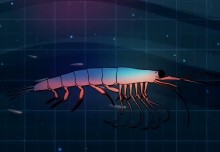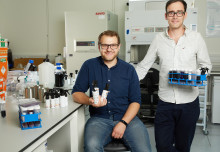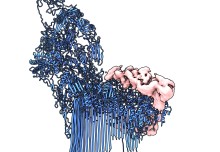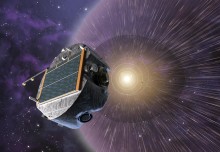

News in brief
Krill thriller and lively lungs: News from the College
Here’s a batch of fresh news and announcements from across Imperial.



Krill thriller and lively lungs: News from the College
Here’s a batch of fresh news and announcements from across Imperial.


New climate pledges significantly more likely to prevent worst of global heating
If fulfilled, climate pledges made in the last six years have a much better chance of reaching globally agreed temperature goals.


Updated climate commitments fall far short, but net-zero pledges provide hope
Analysis of countries’ plans to fight climate change show they are not enough to avoid the worst impacts unless further promises are kept.


Science awards and green prizes: News from the College
Here’s a batch of fresh news and announcements from across Imperial.


Owl unseen for 150 years photographed in the wild for the first time
British scientists working in Ghana have photographed a ‘holy grail’ giant owl that has lurked almost unseen in African rainforests for 150 years.
 31
31


Experts push for stricter air pollution standards in new environment legislation
Following the release of new WHO guidelines on air pollution, experts say the new Environment Bill should adopt the stricter guidelines as targets.


Increasing hydrogen energy requires all technologies to be pushed forward
No single hydrogen technology should be prioritised, says a new study, and the production, distribution, and use of hydrogen needs to be optimised.
 4
4


Audio
Podcast: Healthy environments, polio progress, and colour-change hygiene checker
In this edition: What makes a healthy environment, the final steps to eliminate polio, and a test for proper cleaning.


Research reveals how ‘chaperone’ proteins deal with immune system overreactions
Scientists have discovered how special proteins in the blood prevent our immune system from harming our own cells with overproduced molecules.


Imperial to build instrument for new NASA mission to study the solar wind
A new mission, called the Interstellar Mapping and Acceleration Probe (IMAP), will carry a magnetometer built by Imperial physicists.